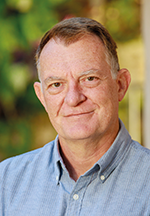

On Monday morning, I was making my way very slowly across town to my office. The drive was – even by Monday morning standards, which is usually busier than other days with everyone trying to get an early start to the week – incredibly frustrating. This was the result of the increased loadshedding schedule with citizens lumped together, caused by many traffic lights being non-operational. Chaos was the order of the morning; hooting, gesturing and some crazy, if not inspirational, driving.
This got me thinking about a news article I recently read regarding the money the eThekwini municipality were spending on the dysfunctional city-wide CCTV system. Almost R110 million has been earmarked to upgrade and repair a system that is currently operating at 20% capacity, mainly due to lack of maintenance and management.
R110 million is a lot of taxpayers’ money. Could this not be better spent? How is this going to improve the overall economy of the region?
My thoughts were abruptly interrupted by an irate motorist wildly hooting at the truck in front of me who had hesitated for a few seconds too long before slowly pulling off through the intersection. How many hours of production were being lost due to people stuck in traffic? I am sure the value beggars belief.
My thoughts darted back to the amount being spent on ‘security’ in the city and I wondered if money like this could not be spent more wisely to alleviate traffic problems. With the march towards renewable energy, and the associated storage solutions available, could major traffic lights not be placed on a backup power system? Many of the traffic lights were switched over from the older high-power incandescent bulbs to newer LED technology many years ago. Surely a system could be implemented to keep the lights on – literally!
Too many people are waiting for Eskom to be fixed. The more knowledgeable (read technically educated) probably know that this is not going to happen. The state-owned generation enterprise is too far gone to be completely fixed. It can however be changed, and that is slowly happening.
This week it was announced that a pilot project to wheel electricity via the City of Cape Town’s energy grid was a success. This clean, green energy was provided in partnership with licensed electricity trader Etana Energy.
This is great news for everyone in South Africa, and one step closer to companies being able to provide and charge for energy supplied into the national grid. A major component of the system is that fact that Eskom has been divided up into separate entities, with the transmission grid being separated from the power generation.
The pilot project includes 15 wheeling participants representing 25 energy generators and 40 end-of-the-line customers. You can read more about it here http://www.dataweek.co.za/20482r. The article fills me with a cautious optimism for what is possible. After all, it was stated quite recently that the total amount of solar generation that private citizens and companies had installed in the past few years in SA was equivalent to one Medupi. All without government paying one cent towards it. Quite genius!
I slowly inched forward, knowing that I had only around 25 minutes left of a journey that usually takes 15 minutes in total. A ray of sunlight snaked its way through the trees lining the road, which filled me with hope, content in the knowledge that we, as citizens, can actually make a difference.
| Tel: | +27 11 543 5800 |
| Email: | [email protected] |
| www: | www.technews.co.za |
| Articles: | More information and articles about Technews Publishing |

© Technews Publishing (Pty) Ltd | All Rights Reserved